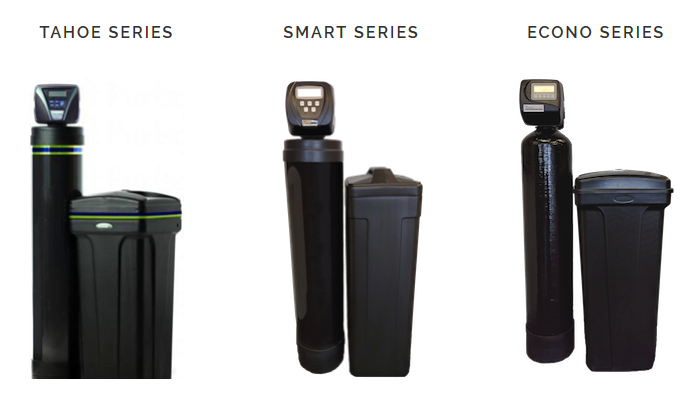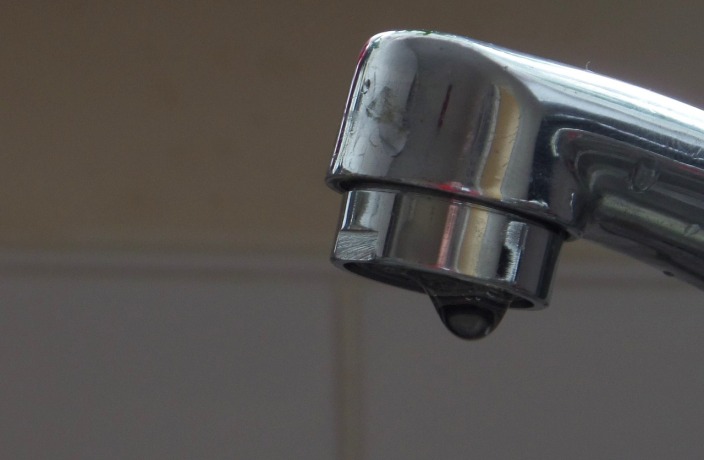Today, we are going to find out if drinking distilled water is your best option.
At WaterSmart, we have over 25 years of experience in the water softener, bottled water, and plumbing industry and we'd love to share our expertise with you.
We are going to talk about your different drinking water options such as mineral , spring, mineral, glacier, reverse osmosis, purified, filtered, softened water, tap water, and well water. So, let's get started.
Learn about the different drinking water options
Is Drinking Distilled Water Your Best Option?
The following chart summarizes your drinking water options. Click on the different water types to learn more about each one.
Drinking Water Options
| Water Type | Advantages | Disadvantages |
|---|---|---|
| Distilled | Best for use in machinery | May cause mineral deficiencies |
| Mineral Water | Contains healthy minerals | More expensive than tap water |
| Spring & Glacier | Contains healthy minerals | More expensive than tap water |
| Reverse Osmosis | Better if you don't like the taste of minerals | Large one-time purchase, low ongoing costs |
| Purified Water | Safe to drink | May not contain healthy minerals |
| Softened Water | Better for appliances, skin & hair | Uses a lot of water to produce |
| Tap Water | Economical & convenient | If hard - can damage plumbing & appliances |
Distilled Water
Distilled water is water that has been boiled and the resulting steam is collected and then condensed back into a liquid state.
The resulting liquid is pure H2O. Distilled water is the purest type of water, as all of the minerals and contaminants have been removed from it.
Advantages: Drinking distilled water is a short-term option if you are in an area where the tap water is contaminated and there are no other forms of safe water to drink.
Distilled water is also a great solution to use in machinery and in particular batteries because it it free from minerals, so it won't leave any buildup.
Distilled water is pure H2O
Disadvantages: Drinking distilled water over a period of time is not recommended. Even though it is completely safe for you to drink, drinking distilled water may cause you to lack sodium, potassium, chloride and magnesium. Your body and, in particular your teeth, require these minerals.
In addition to not providing your body with the vitamins and minerals that it needs, drinking distilled water can also remove the minerals that you already have, causing a deficiency.
Learn how to make your own distilled water
Mineral Water
Mineral water is water that comes from a mineral spring. It is naturally full of minerals including calcium, magnesium, and sulfur which are good for your health.
Advantages: Mineral water provides your body with the healthy minerals that your body needs, but that your body can't create on its own. It can help promote good digestion. Some people prefer the slightly salty taste of mineral water over tap water.
Disadvantages: The biggest disadvantage of mineral water is the cost, especially as it compares to tap water. You can also get the minerals that your body needs from eating a healthy and varied diet.
Mineral water is more expensive than drinking tap water
Spring or Glacier Water
Spring or glacier water is water that is supposed to have been taken and bottled from its originating source ie. a natural spring or from a glacier.
Spring water is actually rain water that has gathered under the ground and then leaks out onto the surface as a spring or a puddle. Glacier water is collected from a glacier.
Advantages: Spring and glacier water usually contains the healthy minerals for our bodies just like mineral water. You may prefer the taste over tap water.
You can purchase safe bottle spring water from WaterSmart
Disadvantages: If you have collected the spring or glacier water yourself, you run the risk of it having contaminants or bacteria in it that could make you sick.
This is especially true if you collect the water from a mountain that is close to a polluted city or from the bottom of a glacier.
Bottled spring water is generally safe to drink. However, it can cost more than tap water and it is harmful to the environment, especially if you purchase individual bottles.
Filling up large re-usable bottles is a less expensive and more environmentally friendly alternative.
Glacier water comes from an actual glacier
Reverse Osmosis
Reverse osmosis is a type of water treatment that takes your tap water and forces it through a semi-permeable membrane made of really small holes or pores.
Impurities in your water that are too big to pass through these pores are trapped and left behind to be flushed away later. The resulting clean water is free of impurities.
Reverse Osmosis removes many impurities from your water - Image By Johnlessdominic [CC0], via Wikimedia Commons
Advantages: Reverse osmosis can improve the taste of water for people who do not like the taste of dissolved mineral solids.
If you have hard water and you don't want to use a water softener because of salt left in the water, reverse osmosis will also remove salt. Many people prefer the taste of water filtered through a reverse osmosis system to tap water.
Disadvantages: The system is more expensive than a water softener but it removes more contaminants including salt and the resulting water tastes great.
Learn how reverse osmosis works
Purified Water
Purified water is a general term that refers to water that has had any chemicals or contaminants removed from it. Purification processes could include distilling, reverse osmosis, and carbon filtration.
There are different levels of purification. For example, most city tap water has been purified to make it safe to drink, but will still contain some minerals whereas distilling removes everything except the pure water.
Advantages: Purified water is safe to drink.
Disadvantages: Depending on the level of purification, healthy minerals may have been removed from the water.
Water that has been purified is safe to drink
Softened Water
Softened water is water that has had the calcium and magnesium removed from it. Both calcium and magnesium are what makes water “hard.” A water softener is used to “soften” water.
Advantages: Soft water is easier on your plumbing, appliances, and faucets as it doesn't leave a mineral build-up that can damage them over time and cause you to have to replace them more often.
Soft water is also better and gentler on your skin and hair, plus you require fewer cleaning agents for sinks, tubs, and toilets when your water is soft.
Water Softeners remove the minerals that make your water hard
Disadvantages: Soft water does use a lot of water to produce. If you are concerned about the amount of water that you use, you could consider only softening your hot water. Learn more here.
If you are wondering whether or not your softener is working well, then you can bring us a sample of water and we’ll test it for free!
Tap Water
Tap water is an inexpensive drinking option
Tap water refers to water that is piped into your home. It can come from a public water system where the water has been treated in a water treatment plant so that it is safe to consume.
Advantages: Tap water is inexpensive and convenient to use.
Disadvantages: If your tap water is very hard, you can get mineral deposits that can damage your plumbing and appliances as well as leave your skin and hair feeling dry. Learn more about the effects of hard water here.
WaterSmart: For the Best Water in the KW Region
WaterSmart is your local experts for all your water needs in the Kitchener Waterloo Region including selling high quality water coolers and bottled water. We have been servicing the area for over 25 years!
We can deliver your bottled water right to your home for you at a reasonable rate. You can choose from spring, distilled or purified water and you can even order online!
Or if you prefer, you can come to our store and fill up your own bottles for the incredibly low price of 20 cents per litre. We also offer prepaid water plans and you can wash your bottles on site! Contact us today to learn more.
"Fast and efficient. You go in and are always greeted by their staff warmly and they assist with cleaning the bottles and most times taking them to your car. I have been a customer here well over 10 years!"
- Mark Wolf
Read more reviews









